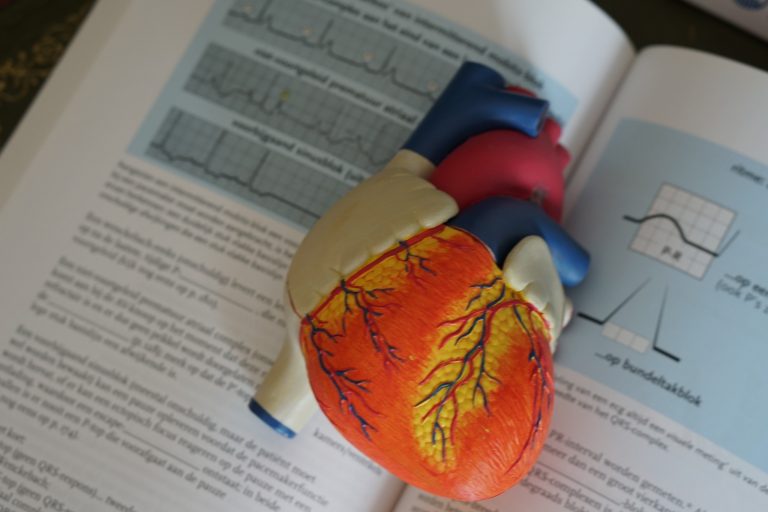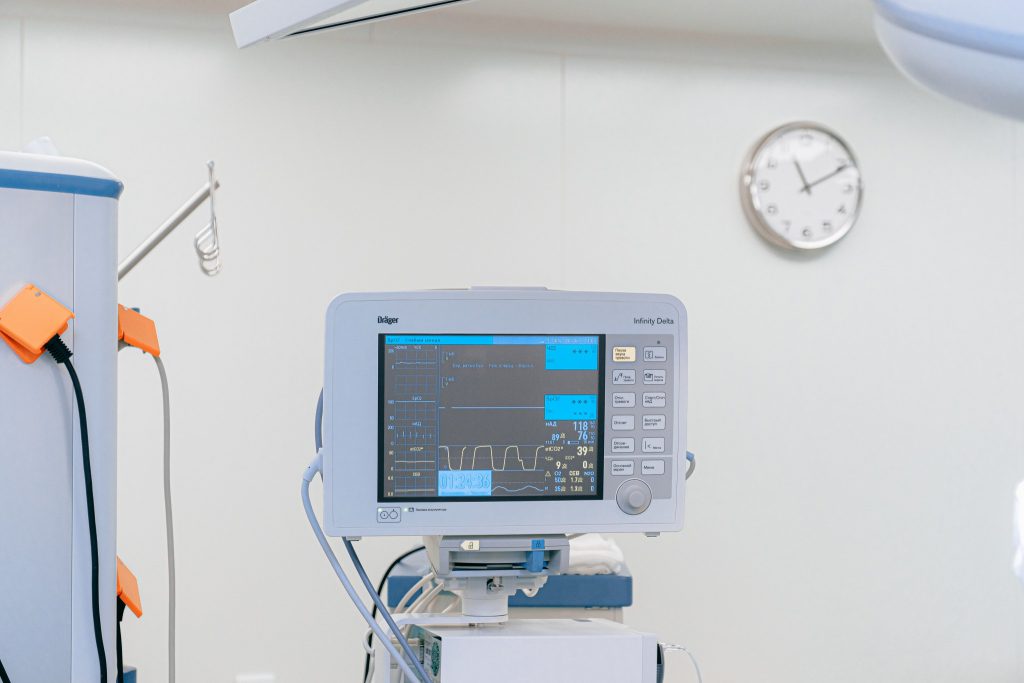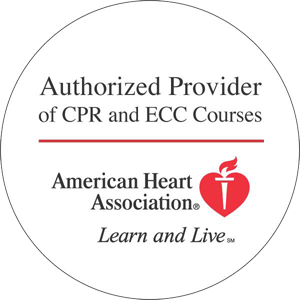Welcome to HeartCert CPR Training Sites. This is your first post. Edit or delete it, then start writing!
Five Ways to Become More Resilient (and Improve Heart Health)
As we close the door on 2020, we’re reflecting on a long and difficult year. Whether you dealt with job loss, isolation, increased childcare demands, health issues, or the loss of a family member or friend, 2020 was incredibly hard for so many reasons. The coming year holds more hope, but the next few months will continue to challenge us. This is why it’s a good time to work on becoming more resilient – for the good of both your physical and mental health.

What is Resilience?
According to the American Heart Association, resilience is defined as the ability to not only withstand stress and increasing demands, but also to bounce back and grow from them. If that seems impossible, there’s good news: resilience is not a fixed trait. It’s actually a set of skills that can be taught, learned and nurtured.
Why is Resilience Important?
Of course, resilience is important for mental health and well-being. But there are physical health benefits as well. Studies have shown that resilience lowers stress, which in turn lessens the impact of chronic health conditions that are caused by stress, such as high blood pressure and heart disease.
How to Become More Resilient
- Reflect: Think about problems you’ve overcome in the past. Recall the resources you used to get through those tough times, and ask for help if you need it.
- Care: Take good care of your physical and mental health. Eat nutritious meals, get good sleep, move your body, and nurture social connections.
- Cultivate Gratitude: It can be difficult to focus on the good when life feels hard. Take a few minutes to write down one or two good things that happened that day, even if they’re as simple as seeing a sunset or hearing your kids laugh.
- Reach Out: You don’t need to go about life’s challenges alone. Ask for help and find someone to talk to.
- Repeat: You won’t become more resilient overnight. Practice resilience every day, and it will build over time.
Ready to take better care of the hearts of those around you? Register for a virtual CPR class.
HeartCert CPR is your trusted training partner for CPR, ACLS, PALS, EMR and First Aid in the Twin Cities and throughout Minnesota.
HeartCert CPR courses include CPR/AED/First Aid and CPR/AED, Basic Life Support (BLS), Advanced Cardiac Life Support (ACLS), Pediatric Advanced Life Support (PALS), and Certified Nursing Assistant training. Courses and certifications from both the American Heart Association and American Red Cross are available.
We are now offering virtual CPR courses and certifications, as well as safe in-person courses at our headquarters, HeartCert CPR Eagan.
Maintain Social Connections for Heart Health
Normally, December is a month of parties, celebrations, and quality time with family and friends. But as the pandemic continues to spread throughout Minnesota, it appears that this will be a holiday season like no other. Most – if not all – holiday gatherings will have to be downsized or cancelled, and the social contact we rely on to get us through the cold and dark days of winter will not be available.
Experts say that it’s more important than ever to maintain those vital social connections throughout the holiday season. Not only is it beneficial for mental well-being, but it could have a big impact on heart health as well.
How Social Connections Boost Health
According to the American Heart Association, there is proven evidence of the link between poor social relationships and negative health impacts. Following a 2010 analysis of nearly 150 studies involving more than 300,000 people, experts concluded that loneliness and smoking had similar mortality risk factors. Loneliness was even found to be more harmful than obesity.
How to Maintain Social Connections While Physically Distant

After 9+ months of isolation, all the things we did to stay connected in the early part of the pandemic – Zoom game nights and happy hours, sending letters, text chains – are no longer quite as fun. Yet any efforts to maintain relationships, even if it’s just a quick call or check-in, will have positive benefits.
In addition, take the time to focus inward. Focus on gratitude for the people and things in your life. Nurture your relationships with the people in your immediate family. Take action to minimize stress. And, when it’s safe to gather once again, show your friends and loved ones how grateful you are that they remain in your life.
Did you know that most cardiac arrests occur in the home? That’s why it’s so important to learn CPR. HeartCert is offering virtual CPR training options to keep our students safe. Contact us to learn more.
HeartCert CPR is your trusted training partner for CPR, ACLS, PALS, EMR and First Aid in the Twin Cities and throughout Minnesota.
HeartCert CPR courses include CPR/AED/First Aid and CPR/AED, Basic Life Support (BLS), Advanced Cardiac Life Support (ACLS), Pediatric Advanced Life Support (PALS), and Certified Nursing Assistant training. Courses and certifications from both the American Heart Association and American Red Cross are available.
We are now offering virtual CPR courses and certifications! Find your CPR class at any of our convenient Twin Cities locations, including our headquarters, HeartCert CPR Eagan.
What’s the Difference Between Heart Attack and Sudden Cardiac Arrest?
Many people associate CPR with heart attacks. However, because heart attacks usually don’t cause the heart to stop beating, CPR is not often needed following a heart attack. In contrast, a sudden cardiac arrest occurs suddenly, without warning, and stops the heart from pumping blood. This is when CPR is needed to save the patient’s life, and to preserve brain and organ function.
What are other differences between heart attack and cardiac arrest? We turned to the American Heart Association for more information.
What is a Heart Attack?
When a blocked artery prevents oxygen-rich blood from reaching a section of the heart, that part of the heart begins to die. If the blocked artery is not reopened, damage can be severe.
Because of the gradual nature of a heart attack, symptoms often begin and build slowly, over the course of several hours, days, or even weeks. And symptoms vary, especially between men and women. It’s important to know and be able to recognize symptoms and seek medical attention as soon as possible.

What is a Sudden Cardiac Arrest?
Unlike the slow build of a heart attack, a sudden cardiac arrest occurs with little warning. The effects are immediate. Cardiac arrest is triggered by an irregular heartbeat (also known as arrhythmia). This disrupts the heart’s ability to pump blood throughout the body.
Without CPR performed by a bystander or medical professional, the patient will lose consciousness and die in a matter of minutes. Even if the patient survives, the lack of blood and oxygen to the brain and organs could cause permanent damage. This is why it’s vitally important for bystanders to know CPR – and be ready and willing to perform it when necessary.
HeartCert CPR is your trusted training partner for CPR, ACLS, PALS, EMR and First Aid in the Twin Cities and throughout Minnesota.
HeartCert CPR courses include CPR/AED/First Aid and CPR/AED, Basic Life Support (BLS), Advanced Cardiac Life Support (ACLS), Pediatric Advanced Life Support (PALS), and Certified Nursing Assistant training. Courses and certifications from both the American Heart Association and American Red Cross are available.
We are now offering virtual CPR courses and certifications! Find your CPR class at any of our convenient Twin Cities locations, including our headquarters, HeartCert CPR Eagan.
Quality Sleep Can Protect Against Heart Disease
Getting a good night of sleep has many benefits to both physical and mental health. It can help with weight loss, mental sharpness, mood, skin health, and more. In addition, sleep can also have a direct impact on heart health and heart disease risk. But getting quality sleep is a struggle for many people.

In a recent study, researchers found that adults who got sufficient, quality sleep had fewer early signs of heart disease than those who slept either too little or too much. People who slept five or fewer hours per night had 50 percent more calcium in their coronary arteries than those who got seven hours of sleep. On the flip side, people who slept nine or more hours per night had 70 percent more coronary calcium than those who slept seven hours.
Aim for Quality Sleep
Study participants who had restless or disturbed sleep were found to have 20 percent more coronary calcium than those who got restful sleep. In fact, researchers believe quality may be more important than quantity in determining sleep’s impact on heart health.
How does irregular sleep affect heart health? Click here to learn more.
How To Get Better Sleep
If you’ve had trouble getting enough quality sleep, here are a few tips:
- Don’t look at any screens – including your phone – for at least one hour before bedtime
- Keep your bedroom cool
- Play white noise
- Go to bed and wake up at the same time, even on the weekend
- Have a high-protein, low-sugar snack before bedtime
Did you know? Most heart attacks and cardiac arrests occur in the home. That’s why it’s so vitally important to learn CPR. Ready to learn? HeartCert is here to help. We’re offering virtual CPR training options to keep our students safe. Contact us to learn more.
HeartCert CPR is your trusted training partner for CPR, ACLS, PALS, EMR and First Aid in the Twin Cities and throughout Minnesota.
HeartCert CPR courses include CPR/AED/First Aid and CPR/AED, Basic Life Support (BLS), Advanced Cardiac Life Support (ACLS), Pediatric Advanced Life Support (PALS), and Certified Nursing Assistant training. Courses and certifications from both the American Heart Association and American Red Cross are available.
We are now offering virtual CPR courses and certifications! Find your CPR class at any of our convenient Twin Cities locations, including our headquarters, HeartCert CPR Eagan.
This is an updated blog post that was originally published in February 2018.
American Heart Association Issues New CPR Guidelines
In the new CPR guidelines recently issued by the American Heart Association, the importance of bystander CPR was re-emphasized. “Cardiac arrest is a life-or-death situation,” the AHA committee chair said. “When every second counts, it’s important for lay people to be ready and willing to start CPR.”
The new guidelines recommend that bystanders CPR even if they aren’t sure whether the victim is in cardiac arrest. The risk of harm from CPR is low – especially when compared to the potential risk of cardiac arrest.
New CPR Guidelines Focus on Recovery

In a change, the new CPR guidelines add recovery to the “chain of survival.” The chain of survival is a series of actions that determine how and to what extent a patient will recover from cardiac arrest. Those actions include calling 911, performing CPR, and using an automated external defibrillator (AED).
The new recovery phase includes treatment, surveillance and rehabilitation, which includes monitoring and treating depression, anxiety, and post-traumatic stress caused by the cardiac arrest and heart disease treatment.
Expanding Bystander CPR
The new guidelines also included efforts to encourage bystander CPR. The AHA suggests leveraging mobile phone technology to alert bystanders of a nearby cardiac event. In addition, there is a need for bystander training tailored to specific racial, ethnic, and socioeconomic populations that traditionally have lower rates of bystander CPR.
Ready to learn CPR? HeartCert is here to help. We’re offering virtual CPR training options to keep our students safe. Contact us to learn more.
HeartCert CPR is your trusted training partner for CPR, ACLS, PALS, EMR and First Aid in the Twin Cities and throughout Minnesota.
HeartCert CPR courses include CPR/AED/First Aid and CPR/AED, Basic Life Support (BLS), Advanced Cardiac Life Support (ACLS), Pediatric Advanced Life Support (PALS), and Certified Nursing Assistant training. Courses and certifications from both the American Heart Association and American Red Cross are available.
We are now offering virtual CPR courses and certifications! Find your CPR class at any of our convenient Twin Cities locations, including our headquarters, HeartCert CPR Eagan.



